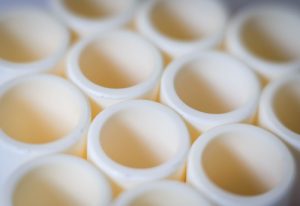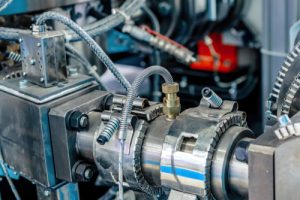There are many characteristics of technical ceramics that make it the perfect choice for many different purposes. Throughout the history of technical ceramics, individuals have used industrial ceramics in many different industries. That continues to this day, and technical ceramics have many interesting uses across multiple industries.
Finding out more about what technical ceramics are and how they are made is the first step towards realizing just how useful this type of material can be for the industry you are in. Before looking for an advanced technical ceramics manufacturer to partner with, you should know the basics.
What are technical ceramics?
The broadest definition of ceramics is “inorganic solids”, and they are one of the main material classes, alongside composites, polymers, and metals. Technical ceramics is a subcategory of ceramics that stands out by possessing the highest performing thermal, electrical, and mechanical properties.
It is because of these excellent properties that technical ceramics are starting to replace refractory materials, metals, and polymers for a variety of applications. Technical ceramics are also highly customizable, which means that an experienced manufacturer can tailor their properties to meet specific requirements.
The high performance of technical ceramics is largely attributed to a very high purity of their chemical composition. It is this purity that allows technical ceramics to exhibit superior properties when compared to some other materials.
What are the advantages of technical ceramics?

Hardness
Engineered ceramics are famous for their high hardness and stiffness. There are types of technical ceramics that are four times as hard as stainless steel. This makes technical ceramics very durable and hard-wearing, which allows them to keep their high-tolerance finish a lot longer than other materials.
Compressive strength
When compressed, technical ceramics boast extremely high strength. Many types of technical ceramics are able to withstand extreme loads of up to 4000 megapascals (MPa). When you compare that to titanium, which is widely regarded as one of the strongest metals with compressional strength of 1000 MPa, you can begin to realize just how strong technical ceramics are.
Low density
The density of technical ceramics is very low and it ranges from 2 grams per cubic centimeter (g/cc) to 6 g/cc. This makes ceramics lighter than titanium, stainless steel, and many other durable materials. Low density equals low weight, which makes technical ceramics perfect for many different industries.
Wear resistance
Many different kinds of technical ceramics can resist extremely high temperatures while maintaining their electrical and mechanical properties. This makes technical ceramics perfect for high-temperature uses, such as jet engines, cutting tools, brake systems, furnaces, etc.
Electrical properties
Technical ceramics are excellent for electrical insulation. Some types of technical ceramics exhibit high dielectric permittivity and low electrical loss, making them ideal for use in resonators and capacitors.
Temperature ability
Technical ceramics are able to withstand temperatures of more than 1750℃, which makes them an ultra-high-temperature material. This allows technical ceramics to be used in turbines, engines, and bearings.
Thermal insulation or conductivity
Different compositions of technical ceramics can have completely opposite properties. For example, some forms of technical ceramics are very thermally conductive, making them the perfect choice for exchanger or heat sinks. Other types function as thermal insulators, making them an excellent choice for other applications. Technical ceramics are very customizable.
Corrosion resistant
Technical ceramics are extremely chemically stable, and they also have low chemical solubility. This allows technical ceramics to resist corrosion. This is a trait that polymers and metals simply cannot offer.
Technical ceramic offers many unique benefits, which is why it’s finding its place in more and more industries and applications. However, all these advantages are only attainable if you find an experienced technical ceramics manufacturer to partner with.
How are industrial ceramics made?

The process of making industrial ceramics through ceramic injection molding consists of four main steps that ensure the best possible end result.
- Ceramics designing – Firstly, a team of experienced engineers has to cooperate with the client in order to design an easily-moldable high-quality component.
- Injection molding – Once the design is complete, it’s time to design the injection molding cycle and to adjust all the necessary parameters to ensure the end-product is as good as it can be.
- Sintering/de-binding – This part includes the removal of the feedstock binder material. After that, high temperatures in sintering furnaces consolidate the part without the binder into a single, fully dense part.
- Post-sintering – Finally, it’s time for the finishing touches. These can include drilling, honing, surface grinding, or any other operation that might be required to produce the final product fully in accordance with the client’s specifications.
Work with the leading advanced technical ceramics manufacturer in the country
With over 25 years in the business, we have the experience and the expertise to take your project from prototype to production to exact specifications. You can contact us at (707) 448-2349, or at sales@wundermold.com.